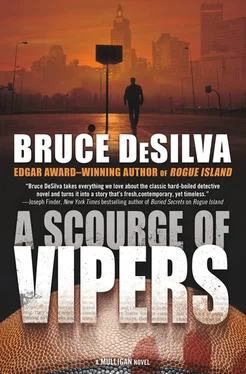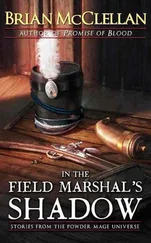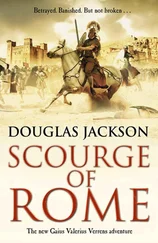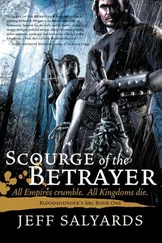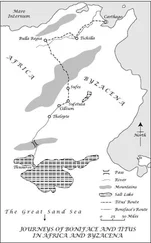“I’d like to think so,” I said, “but I doubt it.”
I rode the elevator to the third floor, punched the newsroom time clock, and saw Twisdale beckon me from his office door. He looked glum. I dropped into the chair across from his desk and said, “What’s the damage?”
“Herald Price Beauregard, one of the five corporate vice presidents for news, called me at home Sunday night. Sounded mad as hell.”
“I’m not sure I heard right. Did you say Harold ?”
“It’s Herald. As in “Hark! the Herald Angels Sing.”
“There’s an actual person named Herald Price Beauregard?”
“There is. He’s flying in from corporate HQ in Tulsa tonight, and he’s bringing a company lawyer and a VP for advertising with him. They’re meeting with me and our advertising director in the boardroom upstairs at eight tomorrow morning. Beauregard ordered me to bring you along, so be on time for a change.”
“Swell.”
“And for God’s sake, behave. Let me do most of the talking. Don’t speak unless you’re asked a direct question. And please, none of your wisecracks. Oh, and wear a jacket and tie for a change, okay?”
* * *
Later that morning, my buddy Mason rang me up.
“Great story yesterday,” he said.
“Thanks.”
“I’m calling to thank you. You just made me a nice piece of change.”
“I did that how?”
“That super PAC, Americans for the Preservation of Free Enterprise? The one your story says is funded by New Jersey gambling interests?”
“Yeah?”
“They dropped their account with The Dispatch and started running a banner ad on The Ocean State Rag site this morning.”
“I figured they’d be dropping us,” I said, “but why’d they turn to your little website? I thought they’d just start spending more on local radio and television.”
“Because we’re growing like crazy,” Mason said. “As of the first of this month, I’ve got more eyeballs than the four local broadcast TV affiliates combined.”
“Really?”
“Yeah.”
“Good for you.”
“The super PAC will probably pull its ads from us, too, once they get a load of the coverage I’ve got in the works,” he said. “But for now, I’m delighted to take their money.”
* * *
Tuesday morning I got up early, showered, shaved, and put on a white dress shirt, my blue blazer, and my best black Reeboks-the pair without any holes or bloodstains. I punched the newsroom clock at a quarter to eight and stepped into Twisdale’s office.
“Didn’t I tell you to wear a tie?”
“I’m sure I’ve got one around somewhere,” I said, “but I couldn’t find it this morning.”
“You only have one tie?”
“One is usually more than I need.”
“Couldn’t find your hard shoes either?”
“When you gave me the dress code,” I said, “you didn’t say anything about footwear.”
He scowled and shook his head. Then he reached into a desk drawer, pulled out a red-and-black checkerboard tie, and threw it at me.
“Here. Put this on.” After I knotted it, he shot his cuffs and glanced at his watch. “Time to head upstairs.”
When we arrived, the boardroom was dark. Twisdale flicked a switch, illuminating twenty carved chairs arranged around an enormous meeting table. The furniture was as old as the newspaper and was said to be the only thing the Mason family had salvaged when they sold their crumbling Victorian headquarters on Washington Street and moved to these new digs on Fountain Street in 1934. For a century and a half, generations of Masons had gathered around this slab of Ecuadorian mahogany to talk business, politics, and public service. I wondered why the family had decided to abandon it here. Perhaps the castles they lived in weren’t spacious enough for a table that could serve as a landing strip for military aircraft. Or maybe they just weren’t as sentimental about mahogany as they were about power and money.
Twisdale and I took adjoining chairs, our backs to a row of high windows that looked down on a McDonald’s restaurant and a shuttered strip club. Across from us, dusty glass trophy cases lined the wall. Inside were scores of plaques, framed certificates, and medals the newspaper had won for its journalism over the decades. Five of them were Pulitzer Prizes. Since our new owners took over, nothing new had been added.
A couple of minutes later, Butch Martin, our advertising director, trudged in. He’d supplemented the dress code with a pocket handkerchief and a funereal expression. Martin was trailed by a cafeteria worker who wheeled in a cart full of pastries and jugs of coffee. The three of us sat in silence as the guy set the table.
The three emissaries from corporate, each toting a leather briefcase, strode in fashionably late at quarter past eight. They took a moment to run their eyes over the trophy cases, claimed the seats directly across from us, and introduced themselves. Twisdale, playing host, poured the coffee. Then Beauregard, the VP for news, opened his briefcase, removed a copy of the Sunday paper, and angrily slapped it on the table.
When he spoke, his voice startled me. Subconsciously, I’d been expecting a man named Herald Price Beauregard to speak in the manner of an effete southern patrician. Like South Carolina senator Lindsey Graham, maybe, or actor Will Patton: “Ah am so disappointed in these heah goin’s-on. And ta think ah had such high regahd fo you fine gentlemen.”
But when he growled, “You three douchebags got some splainin’ to do,” he sounded more like a character from Goodfellas . I couldn’t help myself. I laughed out loud.
“You think I’m funny? I’m talkin’ ta you, jerk-wad.”
“Yeah, I do,” I said. “Ever done any stand-up? That Joe Pesci impression would knock ’em dead at the Comedy Store.”
Beauregard gave me a hard look. I returned it with a disarming smile. Twisdale frowned and dug an elbow into my ribs. Martin fussed nervously with his tie. For what felt like a full minute, no one spoke. Then Martin plucked the handkerchief from his jacket pocket, wiped a sheen of sweat from his brow, and broke the silence.
“Mr. Beauregard, I didn’t know a thing about any of this until I read the paper Sunday morning.”
“Why the fuck didn’t you?” Beauregard snapped.
“It’s not his fault,” Twisdale said. “I never told him about the story.”
“That right?”
“Yes, sir.”
“How many times I gotta tell ya, Twisdale? Any story affecting an advertiser has gotta be run past the ad director.”
“The story was written before the super PAC became an advertiser,” Martin said.
“But it ran three days after they placed their first ad,” Dwight Freeley, the corporate advertising VP, put in.
“I realize I should have consulted with Mr. Martin at that point,” Twisdale said, “but I was distracted by the work required to prepare the story for publication.”
“You were distracted ?” Beauregard said. “That’s your fuckin’ excuse?”
“I’m not making excuses,” Twisdale said. “I’m merely telling you what happened.”
This is where Pesci would have pulled a revolver and started blasting. Beauregard wasn’t packing, but his dark eyes drilled us with hollow-points.
“So what’s the bottom line, here?” Freeley asked. “How much is this fuckup going to cost the company?”
“The super PAC, Americans for the Preservation of Free Enterprise, called me yesterday afternoon to announce they were dropping us,” Martin said.
“They were running daily, four-color, full-page ads?” Freeley asked.
“That is correct,” Martin said. Again with the tie.
Читать дальше
